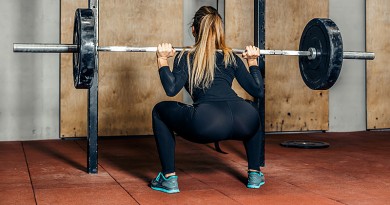Bodybuilding dictionary – part II
We continue to show the most common expressions for those who are adept bodybuilding. Add them to your daily vocabulary.
The expressions employed by those who train bodybuilding can let any rookie on the edge of a nervous breakdown and thinking that they are listening to “Chinese”. Here we clarify a few more bodybuilding terms, so you can go training more confident.
Intensity
Energy or power the athlete reaches during the execution of the exercises and is measured by the ratio strength/speed. It is one of the most important factors for a successful hypertrophy, varying from person to person and with the goals and methods of training.
Isometric Exercises
Ways of static training, muscle tension, with muscle contractions which the muscle length does not vary and that does not occur any visible movement of the joints.
Leg press
This is a machine used in bodybuilding, where weights lifts are done with the legs in a sitting position.
Load
This term refers to nothing more, nothing less than the weight to use in each repetition.
Maximum repetition
Implies raising the greatest possible weight at once, in an exercise.
Muscle anabolism
Related to our metabolism, this is a constructive process which results in the regeneration and development of muscle mass.
Muscle catabolism
Conversely, the catabolic process is one in which the body “destroys” the muscle tissue. The right nutrients, a proper rest and other factors can soften this process.
Muscular hypertrophy
It is commonly used as ” hypertrophy “. This is one of the words that you will hear often, as it refers to the main goal of almost every bodybuilder, the notorious increase of muscles. This is the scientific term that designates the increase of muscle tissue, as well as muscle strength, which is stimulated by training with heavy loads.
Overtraining
This term means excessive physical activity prevents the body from fully recover between workouts and that will harm the growth of muscle tissue.
Plateau
When the physical evolution seems to have reached a halt, the muscles reached their plateau, they don’t react to physical effort increasing in size. In these cases, it is necessary to introduce variations in training, so muscles feel encouraged and continue to grow.
Progression
This term relates to the evolution of weight training. It is the gradual increase of load used in each exercise. This progression must be continuous and consistent, otherwise muscle gains may not be satisfactory.







